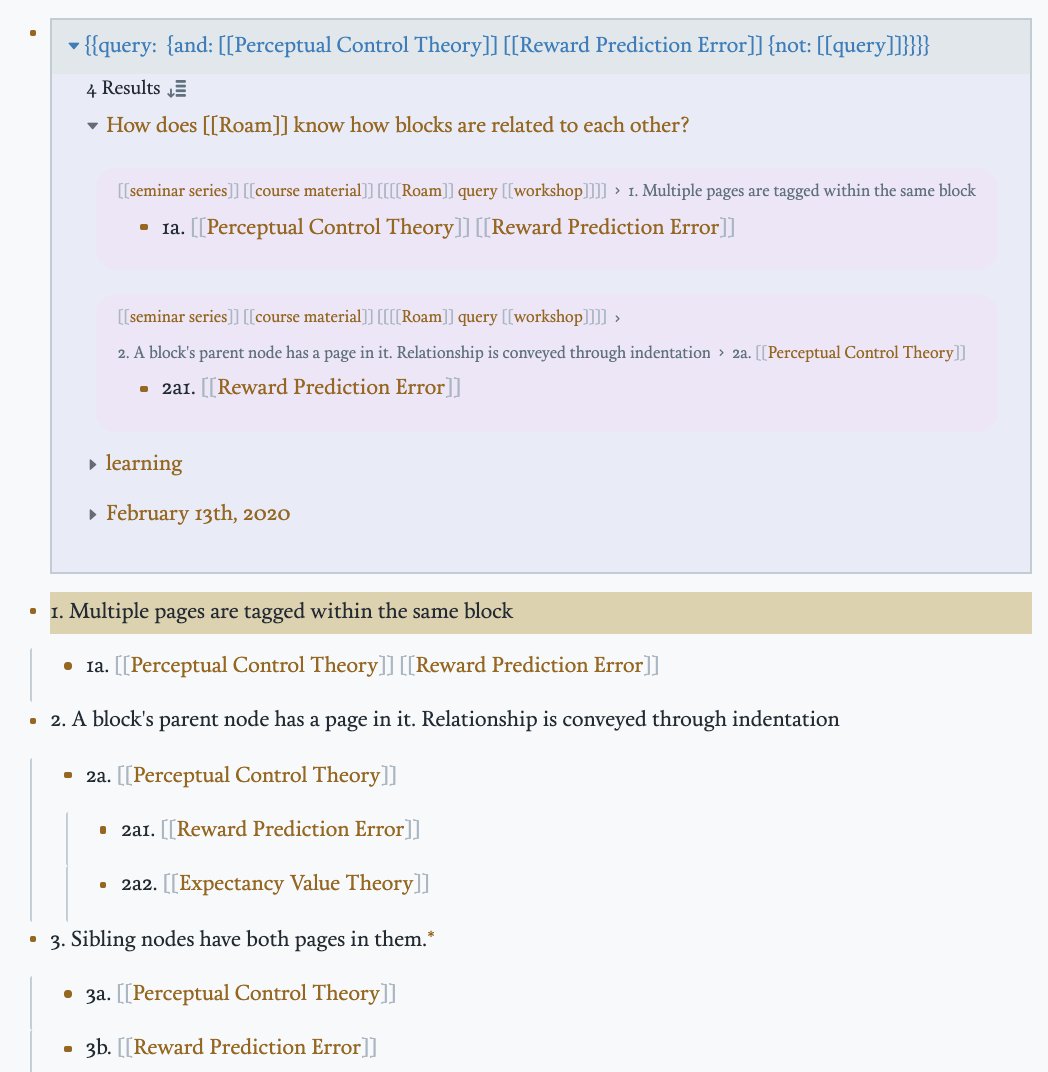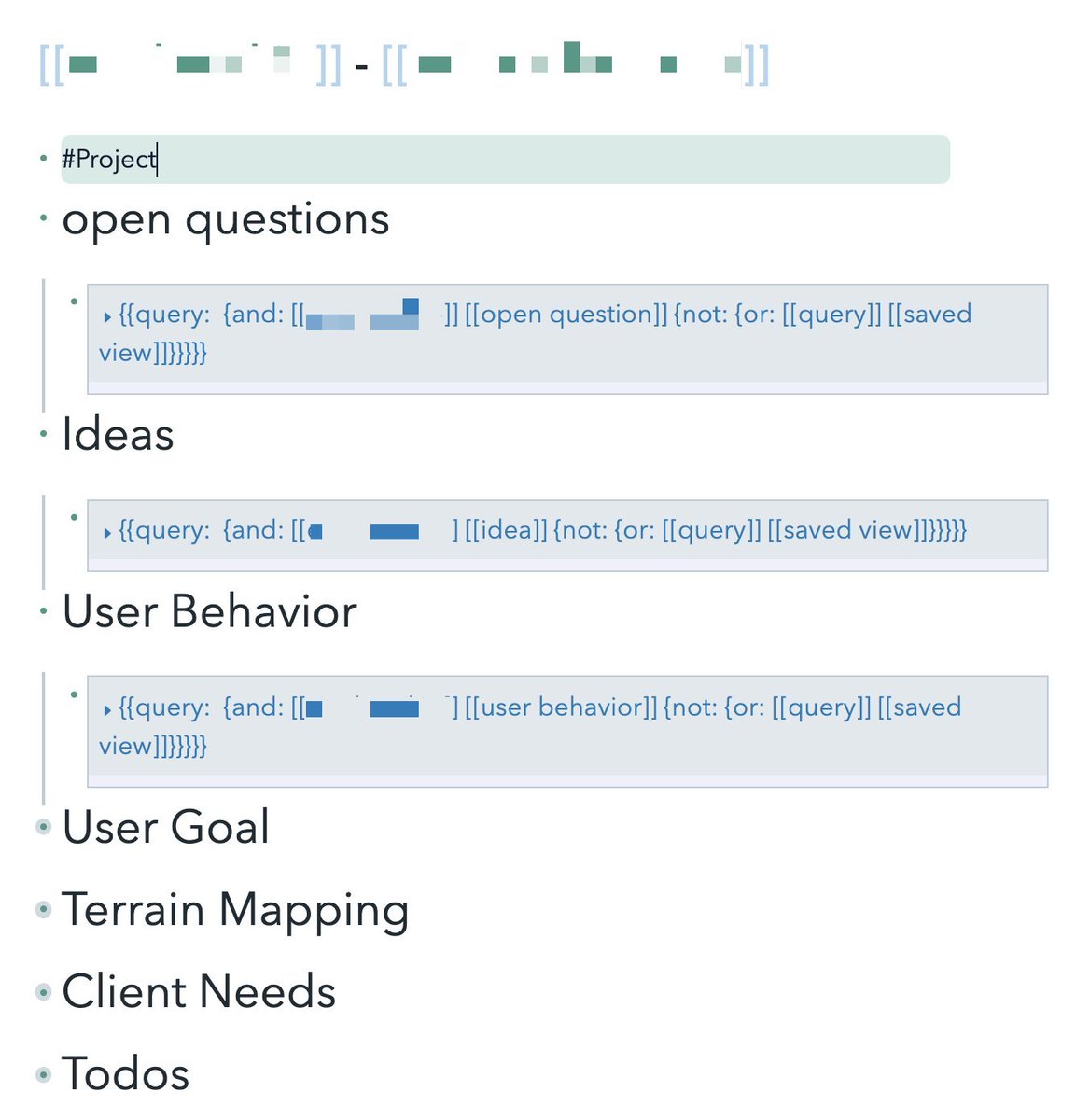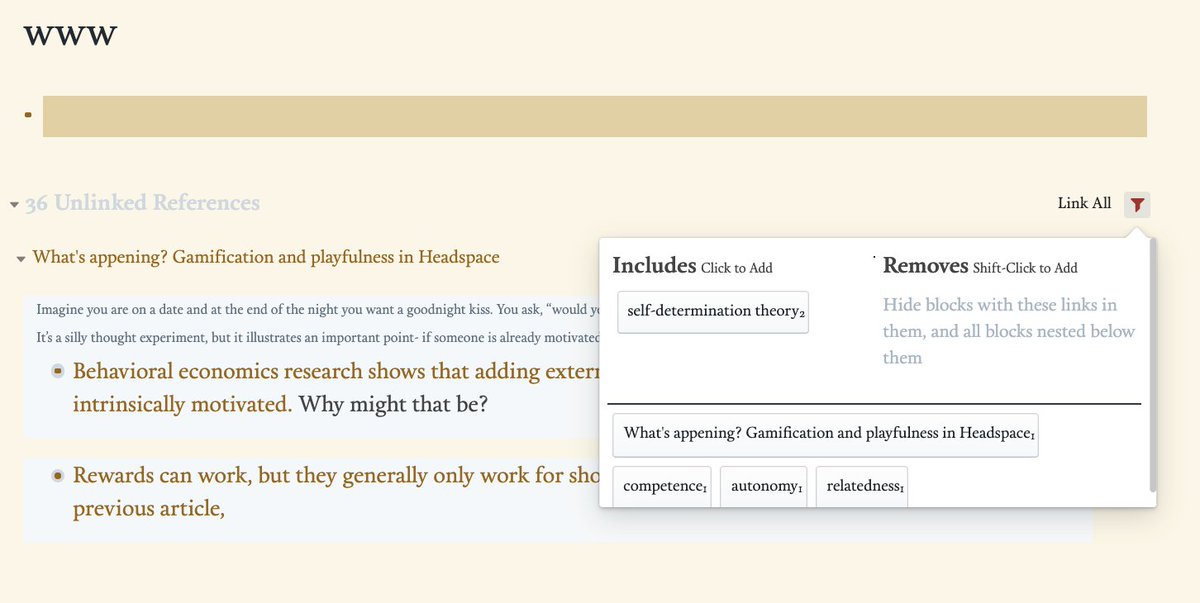And the first [[Path to Power User]] query workshop is done! Some thoughts: 👇️🧵️
Also, #roamcult, if you're interested in staying in the loop for future workshops, sign up here: guidedtrack.com/programs/gtkgt…
Also, #roamcult, if you're interested in staying in the loop for future workshops, sign up here: guidedtrack.com/programs/gtkgt…
You need to understand how pages are connected together in order to understand what the results of a query or linked reference filter will be. This seemed to be the most powerful thing people learned: how Roam recognizes connections. Look at the results of this query: 

Seriously, none of the popular material I've seen online for Roam explicitly addresses how indentation within a block hierarchy works to say "[[page 1]] is related to [[page 2]]." Some rules of thumb:

https://twitter.com/RobertHaisfield/status/1297155666340016132

People also benefitted from the idea of queries as custom views of your data. It's like creating saved views of a database in Notion, except you don't have to structure every page you have into metadata. Connections come from indentation, not rigid columns 
https://twitter.com/mariepoulin/status/1260666635666378752

I could have had a clearer structure. A lesson plan with course materials that people could copy in from a public database. I jumped around a bit. Asides were of varying usefulness. Here's a fun one - Try filtering unlinked refs for anything. Here I'm pulling in websites. 

I think part of my issue there was I didn't know what page everyone was on. For future workshops, I'll probably require prerequisite material. Then we could have a more effective Q&A guided discussion under shared understanding.
I like doing live events, so an alt structure here is that I could create a package of instructional materials that people can purchase on their own, and then have a live event to discuss those materials. More of a flipped classroom approach. I like specific subjects over courses
There were some technical difficulties. Breakout rooms, some issues with the size of text on the screen, etc. In the future, I'll use a CSS that's closer to vanilla. These should be easy enough to resolve for future workshops.
For those who weren't able to make it live, you'll receive the recording in the next week! I may want to edit and reshoot a few parts of it for clearness sake and not making people rewatch technical difficulties. "Little rough around the edges" lol yup
https://twitter.com/Colby95113256/status/1312481034919800832?s=20
Overall, I'm happy with how this went! I wasn't expecting nearly as many participants as I ended up with so it wasn't the "small experiment" I had in mind. I'll be making new workshops and adjusting the query one to do again with what I've learned from this experience.
• • •
Missing some Tweet in this thread? You can try to
force a refresh






